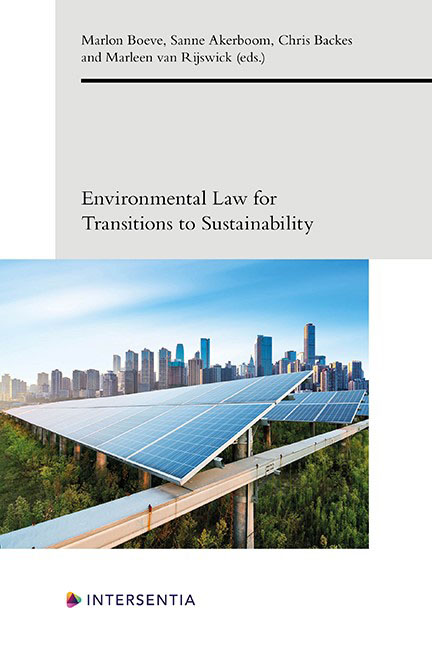An Analysis of the Circular Economy Legislative Package: A New Paradigm vs The Old Waste Law
Published online by Cambridge University Press: 11 November 2021
Summary
INTRODUCTION
Adopted by the European Parliament and the Council on 30 May 2018, the waste package was the first legislative endorsement of the circular economy political strategy launched by the European Commission in 2015. Indeed, this is the first time that the principle of circular economy has been written into an EU legal binding instrument. Its adoption allowed the Juncker Commission to see the first legislative acts of its major environmental project published before the end of the mandate.
The circular economy legislative package consists of four directives that reform the European regulatory framework for the waste sector. Here, we will focus on the modifications that Directive (EU) 2018/851 made to Directive 2008/98/EC on waste, known as the Waste Framework Directive (WFD). It should be noted that about three-quarters of the WFD has been modified (31 of the 47 articles have been replaced or added in, along with two new annexes). In this sense, the reform raises, first, a question regarding legislative technique. Such a thorough revision of the regulatory framework on waste could have been done through a new framework directive that more ambitiously and thoroughly examined its relationship with other regulatory sectors (product legislation, eco-design, materials or chemical substances).
Nonetheless, the present work raises a more specific question concerning the extent to which the approval of the legislative package has contributed to the introduction of a new sustainability paradigm by incorporating the new principle of the circular economy into European waste law. It should be recalled that the circular economy strategy sought to bring about ‘systemic change’ , as stated in the Action Plan for the circular economy that was presented in 2015, along with the legislative reform proposals.
In other words: has the new regulatory framework introduced substantial changes to the legal regime of waste which, in their development by national or regional competent authorities, will lead to significant change in existing waste management and prevention policies ? Or to the contrary, does the reform merely aim at providing new or updated monitoring mechanisms to improve effectiveness and compliance with regard to waste law, rather than introducing any substantially new measures ?
- Type
- Chapter
- Information
- Environmental Law for Transitions to Sustainability , pp. 45 - 58Publisher: IntersentiaPrint publication year: 2021
- 1
- Cited by



